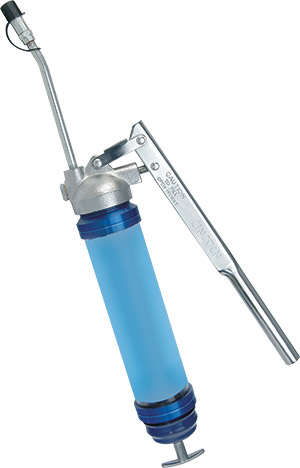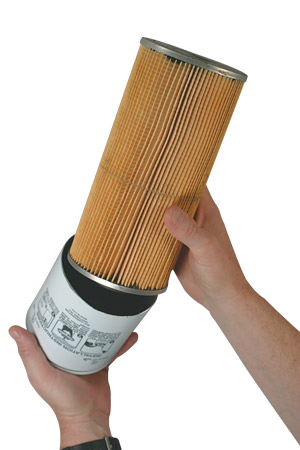Lube-Tips
The “LUBE-TIPS” Section of Machinery Lubrication Magazine features innovative ideas submitted by our readers. Additional tips can be found in our Lube-Tips email newsletter. If you have a tip to share, email it to admin@machinerylubricationindia.com.
Avoid Suction Line Filters
Avoid the use of suction line flters because they can cause problems such as cavitation in the pump. However, be sure that the suction line at least has a protection strainer with a 200-micron rating to help keep small, hard objects from damaging or jamming the pump. Always check with the pump manufacturer before ftting any devices immediately upstream of the pump, as these can affect pump performance and lead to issues downstream in work-end components.
Lubricant Alternatives for Hot Applications
In hot applications, severely hydroprocessed and hydrocracked base stocks may be a suitable alternative to synthetic lubricants at a much lower cost. Some of these lubricants have very high viscosity indices and excellent resistance to oxidation and thermal failure.
 Advantages of Synthetics
Advantages of Synthetics
Many synthetic lubricants offer one beneft that mineralbased lubricants typically do not. Energy savings due to the lower frictional characteristics of certain synthetics can be found to be as high as 5-10 percent.
How to Calibrate a Grease Gun
It is very important to calibrate your grease guns. Many lube technicians don’t know how much grease they are applying when using a particular gun. Some grease guns apply twice as much as others with the same single stroke of the gun. Every grease gun should be calibrated and labeled with the type of grease in the gun and the number of pumps per ounce, as well as dedicated to that grease alone. To calibrate, pump grease into a tablespoon until full. Double the number of pumps (shots) and you have pumps (shots) per ounce.
Advice for Storing Oil
Avoid the use of galvanized oil storage and dispensing containers. The zinc in the galvanizing can act as a catalyst to promote lubricant oxidation and premature depletion of critical additives. There are many other types of more chemically stable platings for metal containers. Stainless steel or plastics are also suitable alternatives.
Prevent Engine Failures with Coolant Analysis
A major mobile equipment manufacturer estimated that an average of 53 percent of all engine failures are a direct result of problems with the cooling system. Periodic coolant analysis, including glycol content, pH, conductivity, inhibitor analysis, visual inspection and resistance to corrosion, may be as valuable as routine oil analysis in preventing failure due to the cooling system.
Tips for Retaining Grease in Bearings
Inclined or vertical shafts can result in grease escaping from the bearing due to gravity. This will eventually lead to lubricant starvation and premature failure of the bearing. Consider using a grease with good adhesive properties of penetration class 2 to 3. In addition, a baffle plate, mounted in the housing below the bearing, will help to retain the grease where it is needed — in the bearing.
 Keep Track of Filter Changes
Keep Track of Filter Changes
For the do-it-yourself auto enthusiast, always write the mileage and date on the flter casing with a permanent marker when changing any flters on your vehicle. Also, be sure to record this information on the vehicle’s service history docket. For the minor cost of an oil, fuel and air flter, frequent replacement will ensure a reliable and clean-running engine with added improvement in fuel economy.
Don’t Forget Oil Sampling Ports
When specifying new equipment onsite, always remember to include the optimum primary and secondary sampling ports in the design. It saves time at this stage rather than after commissioning, when ftting the ports may be diffcult. Work with the original e q u i p m e n t manufacturers and let them know your particular needs for the type of sampling valve, etc.
